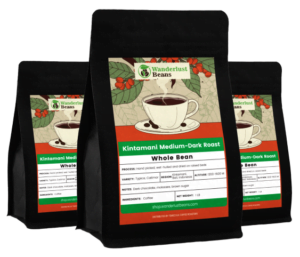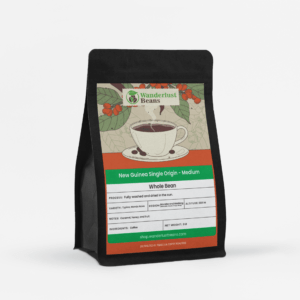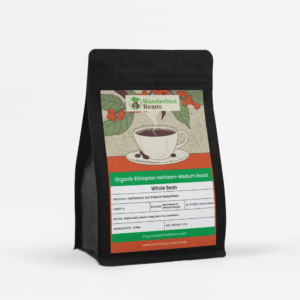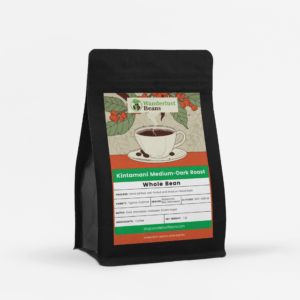Introduction to Specialty Coffee
In the vast world of coffee, where the rich aroma often marks the dawn of new days, the term “specialty coffee” is creating quite a stir. The coffee industry, deeply rooted in tradition, is witnessing a transformation led by this new contender. Beyond the usual morning cup, specialty coffee stands out, promising an experience that’s both unique and unparalleled. So, what exactly is specialty coffee? Let’s embark on this flavorful journey.
What is Specialty Coffee anyway?
“Specialty coffee” isn’t just a trendy term; it’s a mark of quality. As defined by the revered Specialty Coffee Association (SCA), specialty coffee beans must score a cupping score of 80 points or above on their 100-point scale to be considered specialty. However, it’s more than just a score. Specialty coffee is about the entire experience – from the careful cultivation of the beans to the artistry involved in brewing. Unlike mass-produced coffee, which often leans towards quantity, specialty coffee celebrates the unique flavors, ethical practices, and the bean’s intrinsic essence.
History and Origins
To truly grasp the essence of specialty coffee, we must travel back to its roots. While coffee has been a cherished drink for many centuries, the specialty coffee movement began to flourish in the 1970s in the U.S. Pioneers in the coffee world recognized the potential in showcasing the distinct profiles of coffee beans. Instead of a generic taste, they aspired to unveil flavors that narrated tales of single origin regions, climates, and age-old traditions. This pursuit of excellence has paved the way for the thriving specialty coffee culture we know and love today.
The Journey from Bean to Cup
Every cup of specialty coffee tells a story, a tale that begins with a single bean. This journey, rich in detail and passion, distinguishes specialty coffee from the rest.
a. Cultivation: At the heart of specialty coffee lies its beans, nurtured in specific terroirs that provide them with unique characteristics. Factors like altitude, soil quality, and microclimates play pivotal roles. Many specialty coffee farms employ organic and sustainable practices, ensuring both the health of the land and the purity of the beans.
b. Harvesting: Precision is key. Unlike commercial coffee plantations, where machines might indiscriminately gather beans, specialty coffee often sees manual harvesting. This ensures only ripe cherries, brimming with potential, are chosen, setting the stage for the flavors to come.
c. Processing: Once harvested, the beans undergo various processing methods, like washed, natural, or honey. Each method impacts the bean’s final taste profile, teasing out notes ranging from fruity to nutty. This meticulous process ensures that when you sip a cup of specialty coffee, you’re experiencing the bean in its finest form.
Tasting and Flavor Profiles
One of the most exhilarating aspects of specialty coffee is its vast array of flavor profiles and aromas. Unlike the monotonous taste of commercial blends, specialty coffee offers a symphony of notes.
Coffee Cupping: This ritual, akin to wine tasting, allows connoisseurs and enthusiasts alike to discern the subtle nuances in flavor. It’s an art, a science, and a celebration of the bean’s journey.
SCA Flavor Wheel: An essential tool for anyone diving deep into specialty coffee. This wheel categorizes the myriad flavors one might identify, from the obvious to the pleasantly unexpected.
Brewing Specialty Coffee: An Overview
Brewing specialty coffee is an art, and mastering it ensures that the bean’s journey—from soil to cup—culminates in a flavorful climax. While the brewing method and equipment play pivotal roles, factors like water quality, temperature, and grind size are equally crucial. Whether you’re using a French press, pour-over, or espresso machine, consistency is key.
The grind size, tailored to your brewing method, influences the extraction and final taste. Using clean, filtered water at the right temperature ensures optimal flavor extraction. Moreover, maintaining a consistent coffee-to-water ratio can make the difference between a good and a great cup.
For those eager to delve deeper into the nuances of brewing and unlock the full potential of specialty coffee, our detailed guide on brewing methods offers comprehensive insights.
Economic Benefits of Specialty Coffee
Specialty coffee’s influence reaches beyond the palate, making notable economic contributions to both the global market and local communities.
Premium Pricing
The allure of specialty coffee lies in its unparalleled taste and quality, justifying the higher price tag. This premium pricing means growers, who often invest more time and resources into their crops, can see a better return on their investment. Additionally, consumers are often willing to pay a bit more for a superior, ethically-sourced product, ensuring sustained demand.
Value Addition
Unlike mainstream coffee, which is exported primarily as raw beans, specialty coffee frequently undergoes additional processing, roasting, and packaging in its home country. This value addition not only results in job creation locally but also ensures that a more significant portion of revenue remains in the producing country, fostering economic growth.
Sustainable Business Models
The specialty coffee industry’s emphasis on quality and sustainability often results in long-term business models. Farms adopt practices that ensure soil fertility and bean quality for years to come. Moreover, by focusing on building brand loyalty through consistent quality, businesses can enjoy steady revenue streams.
Boost to Tourism
Specialty coffee regions, with their picturesque farms and immersive tasting experiences, have become sought-after tourist destinations. Tourism related to coffee can invigorate local economies, as visitors spend on accommodation, food, tours, and, of course, coffee to take home.
Ethical Sourcing in Specialty Coffee
Ethical sourcing in the realm of specialty coffee is a testament to the industry’s commitment to fairness and sustainability at every step.
Direct Trade
Eliminating middlemen means roasters and growers negotiate prices directly, ensuring a fairer share of profits for the farmers. This direct relationship often results in mutual growth, as roasters can provide feedback straight to growers, and growers can better understand market demands.
Fair Trade Certification
A beacon of hope in the coffee industry, Fair Trade Certification guarantees that small coffee farmers receive a minimum price. More than just economics, this certification mandates environmentally friendly farming practices and invests in community development, ensuring a holistic approach to growth.
Transparent Supply Chains
Transparency builds trust. By offering consumers a clear view of the coffee’s journey, from farm to cup, specialty coffee brands can build stronger relationships with their customers. This transparency ensures ethical practices are maintained throughout the supply chain, as each step is open to scrutiny.
Focus on Sustainability
Sustainability is the future. Recognizing this, many specialty coffee growers adopt organic farming practices, water conservation methods, and reforestation efforts. These practices not only ensure a healthier planet but also guarantee the long-term viability of coffee farming, ensuring future generations can continue to enjoy this cherished beverage. This not only acts as the planet’s guardian but also ensures coffee terrains remain fertile and lucrative for the generations to come. You can read our choice of the best sustainable and ethical coffee brands here.
Challenges in the Specialty Coffee Industry
While the specialty coffee industry has made significant strides in recent years, it faces a myriad of challenges that require innovative solutions and collaborative efforts.
Climate Change
Coffee beans are exceptionally sensitive to climatic variations. Changes in temperature, rainfall patterns, and increased instances of extreme weather events can severely impact coffee yields. As global temperatures rise, many traditional coffee-growing regions are finding it more challenging to produce beans that meet the specialty coffee standards. Addressing this requires both adaptation strategies at the farming level and broader efforts to combat climate change.
Market Volatility
The global coffee market is notoriously volatile, with prices fluctuating due to factors ranging from geopolitical events to harvest yields. Such unpredictability can be particularly challenging for small-scale farmers, who may struggle to maintain profitability during periods of low prices. Stable trading relationships and financial safety nets are vital to mitigating these challenges.
Scale of Production
Specialty coffee’s emphasis on quality over quantity can sometimes limit the scale of production. Balancing the artisanal nature of specialty coffee with the need for broader market reach is a delicate act. Scaling up requires careful planning to ensure that quality isn’t compromised.
Consumer Education
While specialty coffee enthusiasts understand and appreciate the nuances of this premium product, the broader consumer base might not recognize the value proposition of specialty coffee. Educating consumers about the uniqueness, ethical sourcing, and flavors of specialty coffee is crucial for industry growth. You can read more about the challenges of the specialty coffee industry here.
The Future of Specialty Coffee
As challenges arise, so do opportunities. The future of specialty coffee looks promising, powered by innovation, passion, and a relentless pursuit of excellence.
Innovations in Farming
From experimenting with different bean varieties to utilizing technology for precision farming, the future will see even more innovations that enhance bean quality and yield.
Global Reach
Specialty coffee, once limited to niche markets, is steadily gaining global traction. With increasing consumer awareness and appreciation, specialty cafes and products will become more ubiquitous worldwide.
Continued Education
The specialty coffee community’s commitment to education will continue to thrive, from barista training programs to consumer workshops, ensuring that the love for specialty grade coffee only deepens. The specialty coffee industry’s journey is a blend of challenges and opportunities. With dedication and collaborative efforts, the future holds even more aromatic and flavorful experiences for coffee enthusiasts worldwide.

A Difference You Can Taste
Coffee farmers and roasters take great care in producing and processing specialty grade coffee. This is why these beans are more expensive than commercial grade coffee. However, for many people the extra cost is worth the high quality and flavor of this type of bean.
The strict standards for specialty coffee mean that the beans are screened very carefully, and only those with minimal defects make it to this level. The beans must also be roasted in a way that highlights the unique qualities of each bean.
The coffee industry is a massive one, with billions in profits every year. Despite this, the specialty coffee movement is working to bring this beverage back to its roots and connect with the people who grow, produce, and consume it. By choosing to purchase and drink specialty grade coffee, you are helping to support these farmers, roasters, and suppliers and showing that you value the work they put into this popular beverage.
Where to Buy Specialty Coffee?
Are you intrigued by the world of specialty coffee? Do you find yourself wondering, whose specialty coffee to try? Look no further. Wanderlust Coffee is your one-stop destination for all things specialty coffee.
At Wanderlust, we share your passion for specialty and single origin coffee. We offer a wide range of coffees from around the world, each with its own unique flavor profile. Whether you’re a fan of the fruity notes of an Ethiopian Natural or the bold intensity of a Colombian roast, we’ve got something for every palate.
But we offer more than just coffee. We’re committed to educating our customers about the art and science of coffee. From the origins of the beans to the intricacies of brewing, we aim to deepen your understanding and appreciation of this beloved beverage.
So why wait? Embark on your own coffee journey today. Visit our online coffee store and discover the world of specialty coffee. We will even plant you a tree, and your taste buds will thank you!











